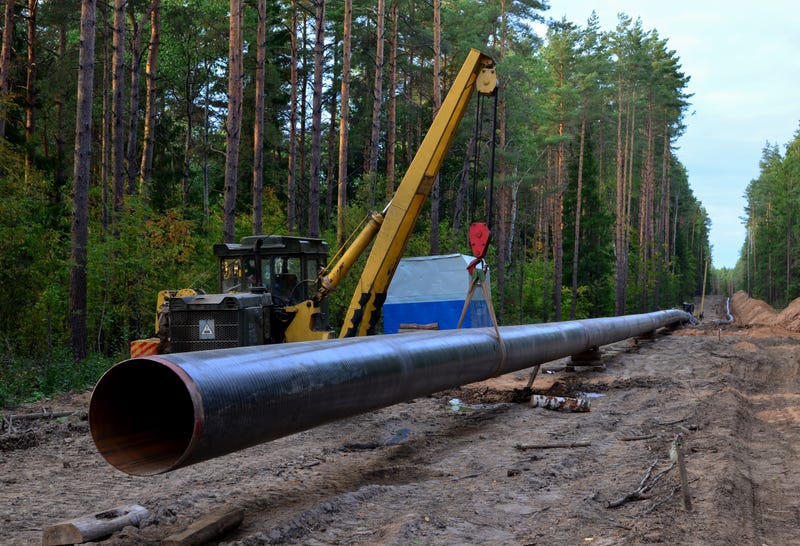
According to group organizers, more than 1,500 people have made their way to northern Minnesota this weekend in protest of the construction of the Line 3 oil pipeline project that was first approved in 2018.
The gathering was organized by the Treaty People Gathering, which met with those who oppose the pipeline project on the White Earth Reservation. The meeting included speeches, rallies, and coordinated acts of civil disobedience in hopes of blocking the multi-billion dollar project.
Opponents have been fighting the construction of the updated pipeline, which would transport 800,000 barrels of Canadian oil from Canada to northern Minnesota every day, since it was approved three years ago.
According to Enbridge energy, the construction on the project began again on June 1 after being on hold for two months due to weather conditions. The company will have 4,000 workers on the ground by mid-June and plans to complete work by the end of the year.
The cold has also stopped protests from gathering in large groups. But now, with weather permitting and the vaccinations rising, the opposition could gain momentum in their fight against the pipeline.
According to the company, Enbridge is working to replace the existing pipeline, which requires extensive maintenance and is not as safe as the new one will be. The new pipeline will also take a different route than the current Line 3 pipeline.
The opposition, which includes several northern Minnesota Ojibwe tribes and the State Department of Commerce, has said that Enbridge has not proven the demand for the new Line 3, according to MPR News.
Groups against the pipeline are not just in northern Minnesota but across the state. They have made their dissent towards the pipeline project known.
The Minnesota Court of Appeals is expected to issue a decision by June 21 on whether there’s a long-term need for the project in the state.
Gov. Tim Walz said on Friday that he does not plan to deploy the Minnesota National Guard for the gathering.
“We expect folks to exercise their constitutional rights, but we don’t expect folks to interfere with lawful construction or lawful practices,” he said to MPR News. Local agencies primarily led the law enforcement presence, according to Walz.
